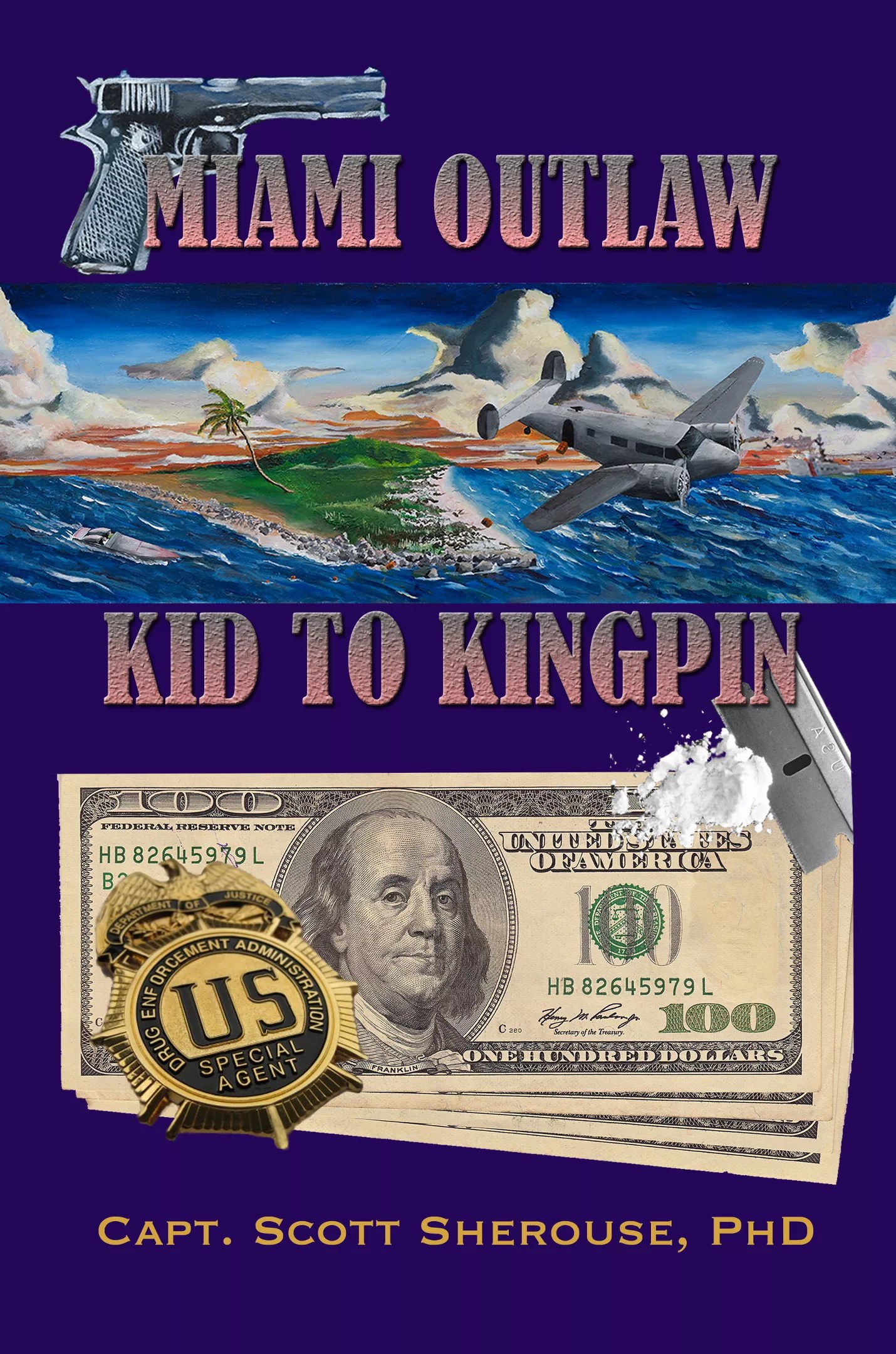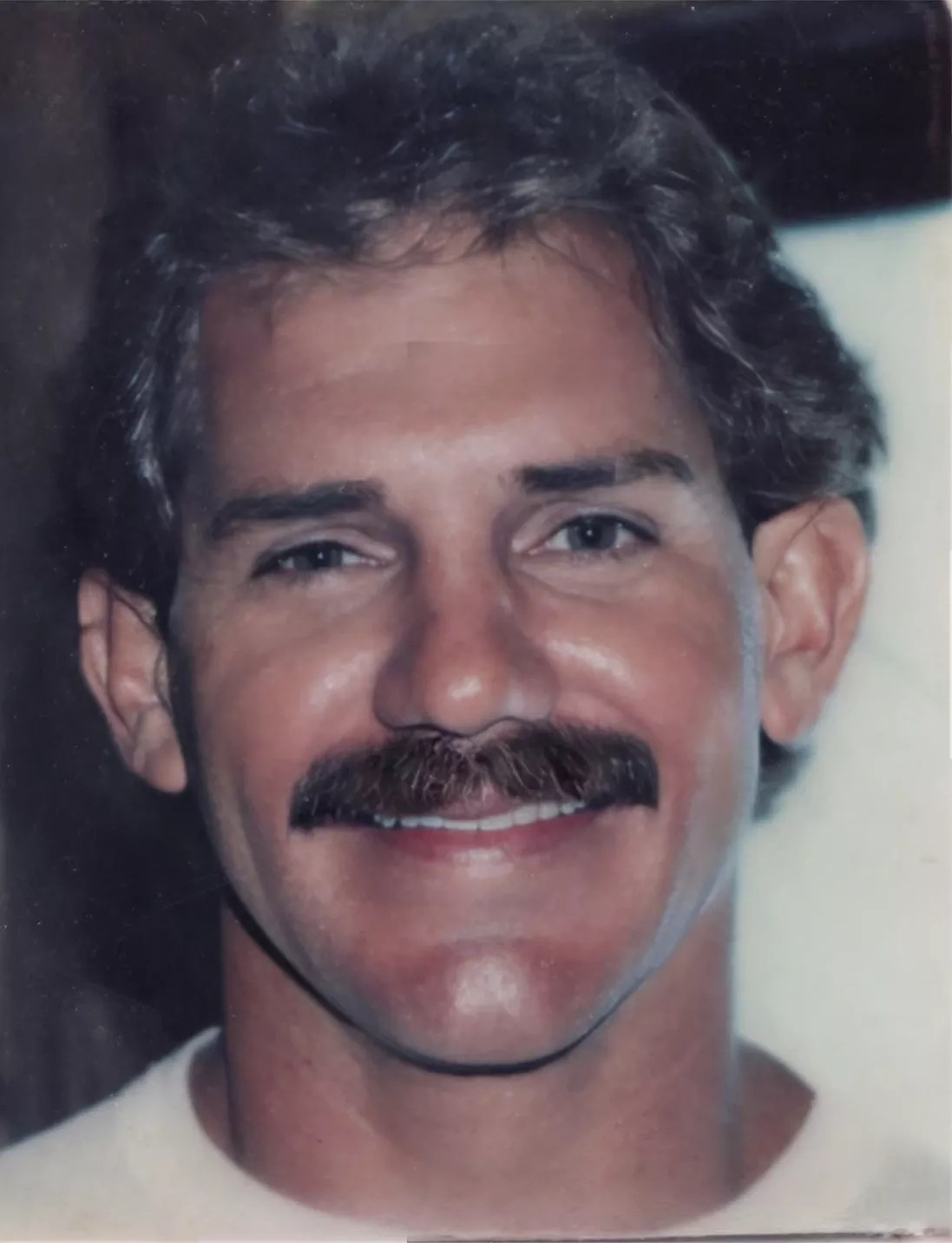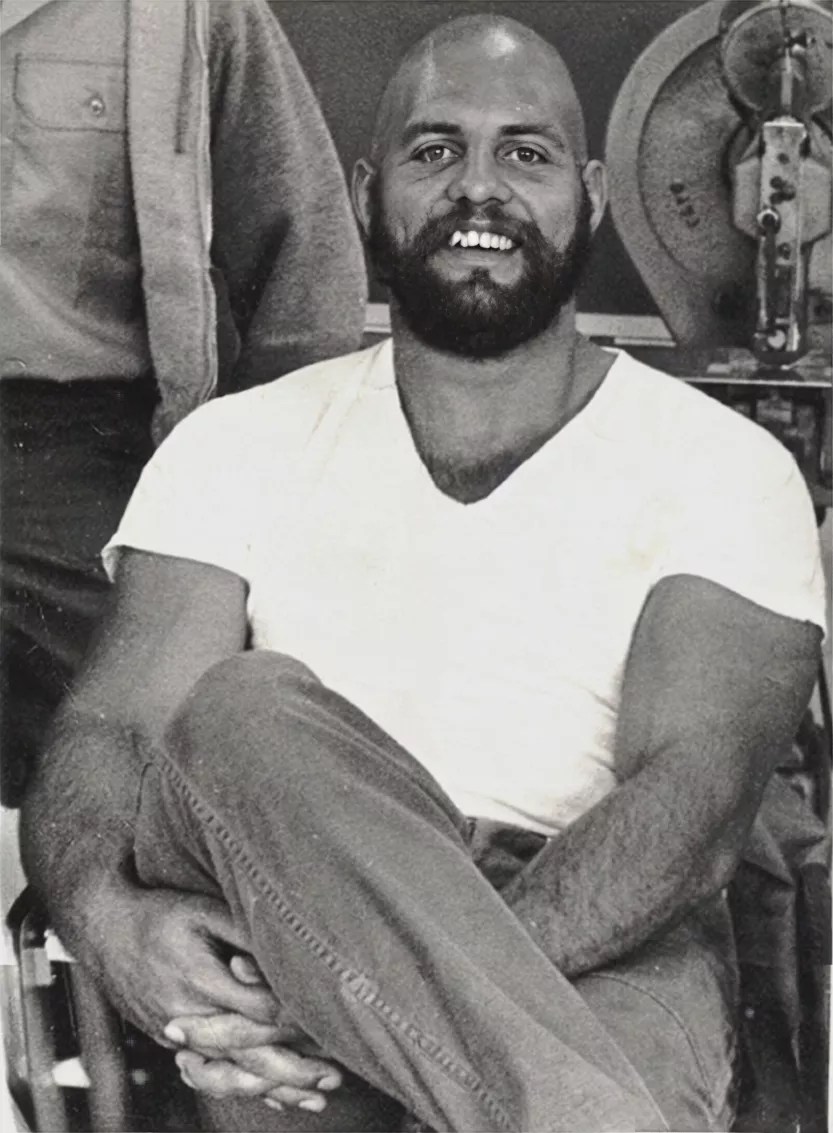
Cover Art by Jhon Barbosa

Audio By Carbonatix
This content is sponsored by Miami Outlaw Saga.
For readers who enjoy devouring true crime memoirs, Miami Outlaw: Kid to Kingpin is a hearty tell-all dish.
At 589 pages, author Scott Sherouse’s mostly true book is a sprawling, annotated, and unapologetically raw account of a crew of South Miami-Dade friends – some high school wrestling stars – who rode the wave of the 1970s and 1980s drug boom from the crystal waters of the Bahamas to the mangroves of the Keys.
Sherouse, once a Miami-Dade College honors history professor and now a superyacht captain, doesn’t just tell the story – he lived it, and he names names. “The names have not been changed because nobody’s innocent,” he says, half-smirking at the notion of sanitized history.
The book is a joyride and a cautionary tale, a history lesson and a confession. It’s “95 percent true with 150 footnotes and endnotes and an extensive bibliography,” Sherouse insists. The remaining five percent? That’s the dialogue and the reminiscences, the color that breathes life into the rapid-fire prose of Miami Outlaw.
Wrestling, Wealth, and the Road Not Taken
Sherouse’s path wasn’t paved in the direction of the criminal underworld. Born into a family of legal heavyweights – his father, a Yale Law grad and Florida Bar chief; his brother, a federal prosecutor; his mother, a history professor with a master’s from Northwestern University. Sherouse was supposed to be the next lawyer, but it didn’t come to pass.
“It was traumatic when I admitted that to myself,” Sherouse recalls. “The whole drug thing was never meant to be a career move. I just sort of fell into it. When it goes right, it’s really easy and very lucrative.”
Sherouse’s first pot smuggling load netted him enough for a new pickup and a condo down payment. He figured one run was enough and landed a blue-collar job, making less than $200 a week in a wood shop. “Before long, it was hard to pay the mortgage,” he admits, so the lure of fast money pulled harder. He wasn’t about to grind away for $20,000 a year like his brother in the prosecutor’s office.
At the heart of Miami Outlaw is the friendship between Sherouse and Alex DeCubas. A former high school state champion wrestler turned cocaine CEO, DeCubas pioneered the use of “mother ships” to smuggle 77,000 pounds of cocaine – worth over half a billion dollars – into the U.S. before vanishing into Colombia with a task force on his tail.
DeCubas spent 13 years as a fugitive, living among some of the world’s most dangerous men. “He’d be at their kid’s birthday party, put the little kids on his back and gallop around like a pony, telling jokes,” Sherouse says. “And at the same time, if you put a fucking 45 in his mouth, he’d shoot you a bird. He’s basically a giant child, totally fearless. It’s probably what kept him alive down there.”
Sherouse met DeCubas at 17 when both were wrestling phenoms. After graduating from Palmetto Senior High School, Sherouse would come back to the gym and train DeCubas, who was roughly three years younger.
From Mat to Mayhem
As they entered adulthood, the pair got indoctrinated into the criminal arts by Sam and Jeremiah, two key characters in Miami Outlaw who mentored Sherouse and DeCubas on ripping off traffickers. “It’s just smarter, better and more lucrative to rob other drug dealers instead of dealing with them,” Sherouse says. “If you rob a guy one time, you’re done with that guy and you’ve made a year’s worth of profit at one time.”
The logic was cold, but the reward made it worth the risks. “Sam and Jeremiah had a way of really reinforcing this [ethos],” Sherouse admits. “I bought into that.”
Eventually though, DeCubas became the main boss of a drug trafficking network that formed a business relationship with a Colombian cartel run by Julio Cesar Nassar David. Known as “The Old Man,” David was at the time one of the world’s biggest traffickers, a pioneer of the pot-packed freighters that became mother ships for cocaine.
In Miami Outlaw, Sherouse recounts his fateful decision to keep a boat load of 221 kilos, worth about $5 million, that belonged to David’s cartel, leaving DeCubas to deal with the fallout. David employed henchmen who closely resembled the big screen mercenaries who took out Miami’s most famous fictional gangster, Tony Montana.
“In hindsight, I might have picked somebody else to rob,” Sherouse says. “The cartel’s enforcers were very much like the guys at the end of Scarface.”

Scott Sherouse in Miami Beach in 1981.
Photo by Ronald Fierro
A History Book Wrapped in Smuggling Stories
Miami Outlaw is part history, part true crime, part memoir and part mea culpa. It’s a deeply personal inquiry into the slippery disposition of truth, betrayal, and human nature. “A simple way to describe it is a history book wrapped around some smuggling stories,” Sherouse says. “You’ll never find another memoir/historical fiction with 150 footnotes and endnotes and an extensive bibliography, right?”
The book is a spellbinding tale of avarice and deceit, but also of discovery – a coming-of-age story gone awry, a true American tragedy. “It’s an incredibly long, involved, intricate story,” Sherouse admits. “This story is like any good story. It’s like an octopus. It goes off in several different directions.”
Sherouse’s Miami is almost unrecognizable today. He remembers a time before Dadeland Mall, when shopping meant hitting Flagler Street in downtown Miami. “The city was on that cusp,” Sherouse says. “It was still this small southern town, yet now we’re just getting into Castro and the Cuban Exodus.”

Alex DeCubas in prison 1981.
Photo by Scott Sherouse
The city’s transformation mirrored the crew’s own evolution – from small-time dopers to major cocaine importers. “The story starts out with some small-time guys selling marijuana, eventually selling cocaine, eventually bringing in cocaine,” Sherouse says.
The memoir is also a meditation on influence. “Most people have about five major influences that really shape their character,” Sherouse says. “Most of the time it’s one or both parents, maybe a grandparent, maybe a coach, maybe a clergyman, maybe a sibling.” For Sherouse, it was also the books he read cover-to-cover as a child – biographies of wild, reckless lives that seemed to always end up with the hero walking through raindrops, unscathed. “I think I was socialized by these books I read as much or more than outside influences.”
The Aftermath: Lessons from the Edge
Today, Sherouse captains a billionaire’s yacht, a far cry from the days of hauling bales of cocaine through the mangroves. He’s reflective, but not regretful. “I think most drug guys, all they need is a couple of years incarcerated to figure out that maybe they should become a landscaper or a school teacher or something, right?”
For readers who savor unsanitized versions of the Magic City’s past, Miami Outlaw delivers a messy, brutally honest account through recollections and annotated history.
“Anybody who’s named in there that’s not happy, well, sorry, but you’re in there for a reason,” Sherouse says. “And if you want to take me to court, no problem.”